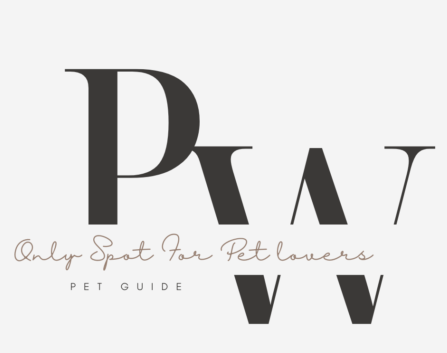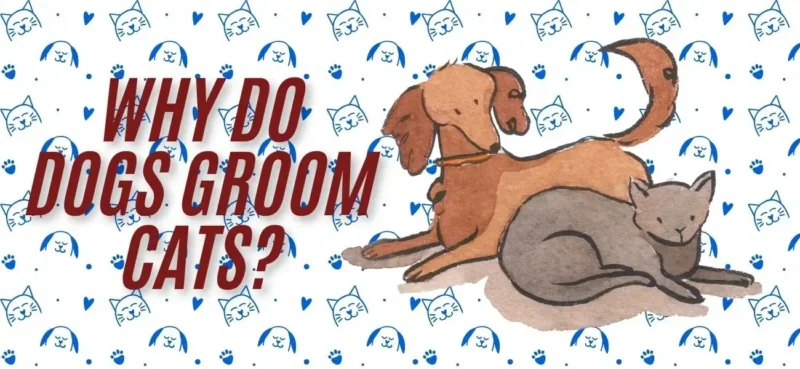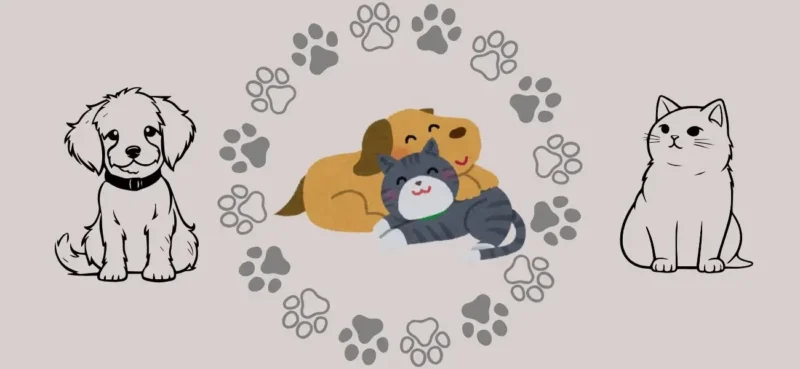Imagine walking into your living room to find your dog gently grooming your cat, and you can’t help but wonder: “Why does my dog groom my cat?” At first glance, it seems like a cute, affectionate act between your pets, but what if there’s more going on beneath the surface? The truth is, many pet owners don’t realize that ignoring or misinterpreting this behavior could lead to missed warning signs about the health and well-being of both animals.
I remember when my own dog, Max, started licking our family cat, Luna, incessantly. At first, I thought it was just a quirky habit, but soon Luna began avoiding him altogether. I dismissed it as simple sibling rivalry—until one day, Luna developed a skin infection, likely exacerbated by the constant licking. That’s when I realized I had made a critical mistake by not paying closer attention. It’s essential to understand what your pets are trying to tell you before it’s too late. So, why does my dog groom my cat? The answer could reveal more about their health, emotions, and overall well-being than you might think.
WHY DOES MY DOG GROOM MY CAT?
Dogs groom cats to show affection, reinforce social bonds, or mimic nurturing behaviors, but they can’t groom cats in the same way that cats groom each other. Cats have specialized tongues with tiny barbs that help them remove dirt, loose hair, and parasites, while dogs lack this feature. Instead, when dogs groom cats, it’s often more about bonding and care rather than effective cleaning.
QUICK OVERVIEW
| Reason | Description | Considerations |
|---|---|---|
| To Show Affection | Dogs lick cats to express care and strengthen their bond, similar to how they interact with humans. | Harmless behavior unless it becomes excessive; consult a vet if necessary. |
| Dog Likes the Taste of Fur | Cats groom themselves regularly, giving their fur a distinct taste and scent that can be tempting for dogs. | Dogs may find licking or nibbling on fur enjoyable and satisfying. |
| Trying to Relieve Stress | Licking can indicate that a dog is anxious or uncomfortable, using this behavior as a coping mechanism. | Persistent licking might signal underlying issues; observe for changes in routine or behavior. |
| Wants to Get Cat’s Attention | Dogs lick cats as a playful way to communicate and express curiosity, aiming to develop a closer relationship. | Monitor interactions to understand and improve their communication and happiness. |
DIFFERENT WAYS YOUR DOG TRY TO GROOM CATS
Your dog not only try to groom cats by licking them but he might adopt some other methods too. Let’s explore each of them:
DOG TRIES TO GROOM CAT BY LICKING
Dogs often lick their feline friends for various reasons. This behavior might seem strange at first, but it’s actually quite logical. When a dog licks a cat, it strengthens their relationship and fosters bonding. This interaction can lead to many benefits, such as providing comfort and reassurance to both pets. On the contrary, it might become a root to some serious issues in your pets too. Here are the reasons why your licks your cat:
TO SHOW AFFECTION
One of the main reasons, “Why dogs lick cats?”, is to show affection. Just like how a dog might lick their owner’s face, they may automatically lick a cat to express that they care. This behavior is especially common in puppies who are still learning about interacting with other animals.
If you notice your dog constantly licking your cat, it’s usually a harmless way to bond. However, if it becomes a problem, it’s a good idea to talk to your veterinarian who can help you figure out how to manage the behavior and stop any excessive licking. When dogs express love through licking, it reinforces their bond with the cat, helping both pets feel more secure and connected. Overall, dogs licking cats can be a sign of respect and affection, helping to build a close bond between them.
DOG LIKES THE TASTE OF YOUR CAT’S FUR
One reason for this behavior is that dogs enjoy the taste of a cat’s fur. Cats groom themselves regularly, which means their fur can have a strong, distinct scent. This scent can be quite tempting for dogs who love to lick and explore different flavors.
When a dog nibbles at the fur, it can be a form of grooming as well. Sometimes, the fur might even feel wet or soaked from the cat’s own grooming efforts. This adds to the excitement for the dog, who might find the act of chewing or licking both satisfying and interesting.
DOG IS TRYING TO RELIEVE STRESS
When your dog got neutered, the experience might have left them feeling a bit anxious or unsettled, and licking your cat could be their way of relieving stress. Dogs often engage in excessive licking when they feel anxiety or discomfort, especially after major events like surgery. This habit can become a way to self-soothe, and sometimes includes licking other pets in the household, like your cat. If your dog is licking your cat frequently, it may be a comforting action for them as they adjust and calm down. Additionally, dog brushing teeth can also be part of their routine to help relieve stress and keep their mouth healthy, contributing to their overall well-being.
In some cases, this might indicate underlying medical issues, allergies, or skin irritation that could need attention from a behaviorist or veterinarian. You may also notice that changes in your household or routine can affect their behavior, so keeping an eye on these adjustments is important.
DOG WANTS TO GET YOUR CAT’S ATTENTION
When your dog is licking your cat, they might be trying to get their attention. This behavior can show that your dog is curious and wants to develop a closer relationship. Dogs have a unique way of communicating with other animals, and this licking can be a playful way to say “hello” or show love. It’s important to observe their behavior. Understanding what your dog is trying to convey can make a big difference in your pet’s daily routine and overall happiness.
DOG TRIES TO GROOM CAT BY PLAYING
When dogs and cats play together, it can be a joyful and exciting experience. Dogs often have playful habits that groom other animals. This behavior can be part of their interaction with cats as they try to show affection. Sometimes, it may look a bit rough, but it’s usually just a friendly way of bonding. When your dog is playing with your cat, they might be trying to strengthen their family bond and make the other animal feel included.
DOG TRIES TO GROOM CAT BY NAPPING TOGETHER
When dogs and cats nap together, it shows they have a special bond. This bonded time allows them to share warmth and comfort, making them feel safe with each other. Dogs often groom their cats during these moments to show care and affection. It’s a natural way for them to express love while enjoying each other’s company.
BENEFITS OF DOG GROOMING CATS
When your dog grooms your cat by licking, it may seem odd, but there are many benefits to this behavior. Dogs and cats can form a special connection through grooming, which can help both pets in various ways. Here are some of the benefits of this interaction:
- Health of the coat: Licks can help remove dirt and debris from your cat’s fur while distributing their natural oils, keeping the coat shiny.
- Reducing stress levels: Licking can be a way to reduce stress and anxiety for both pets. It releases endorphins that have a calming effect, which can help ease any worries your cat may have.
- Bonding experience: Grooming helps create a strong bond between your dog and cat. It’s a way for them to show affection for each other and feel more comfortable together.
- Sharing moments: Watching your dog and cat share these grooming moments can be a joyful experience, adding to the harmony in your home.
If you notice any unusual behavior, such as your dog becoming obsessed with licking or making your cat uncomfortable, it’s best to consult a veterinarian to figure out if it’s necessary to stop this behavior.
DIS-ADVANTAGES OF DOG GROOMING CATS
While there are many benefits to your dog grooming your cat, there can also be some disadvantages to this behavior. Here are a few potential disadvantages of this interaction:
- Excessive licking: If your dog becomes obsessed with licking your cat, it may lead to uncomfortable situations for the cat, causing stress or anxiety.
- Skin irritation: Constant licking can cause skin irritation for your cat, especially if the dog’s saliva contains allergens that could lead to allergies.
- Hygiene concerns: While licking can remove dirt and debris, it can also transfer bacteria and other germs, potentially leading to health issues for both pets.
- Interference with grooming: If your dog is constantly licking, it may disrupt your cat’s own grooming routine, preventing them from maintaining their coat health.
- Behavioral problems: This grooming behavior might indicate underlying behavioral issues in the dog, such as anxiety, which may need to be addressed by a veterinarian.
If you observe these disadvantages, it’s important to monitor the situation and consult a professional if necessary.
HOW CATS AND DOGS EXCHANGE SIGNALS?
Understanding how cats and dogs communicate can help explain why they sometimes get their signals crossed. While dogs wag their friendly tails to show happiness, cats may show agitation by flicking their tails back and forth. This difference can lead to misunderstandings between the two animals. Here are some ways they might misinterpret each other:
- Greeting Styles: Dogs often greet by going nose-to-butt, while cats prefer a nose-to-nose touch, which dogs might find rude.
- Vocal Sounds: Dogs bark for attention, and cats meow. However, the sounds don’t really translate across species, leading to confusion.
- Body Language: A dog rolling over shows they mean no harm, exposing their vulnerable bellies. But for cats, this can be a sign to grab, scratch, or bite.
- Raised Paws: When a cat raises a paw, it can seem like an invitation to play. But it might also mean the cat is warning the dog to back off.
- Ear Positions: Dogs and cats hold their ears differently when feeling fearful or aggressive. A dog might mistake a cat’s fear for neutrality, leading to further confusion.
HOW CATS AND DOGS COMMUNICATE WITH EACH OTHER?
Cats and dogs have their own ways of communicating with each other. While they may not speak the same language, they use different signals to express their feelings. Understanding these vocalizations and body language can help us see how they interact, whether it’s a friendly gesture or a sign of discomfort.
-
- Shrieks, yelps, and growls are vocalizations that show pain, fear, or aggression. Both species can recognize these signals.
- When they blink softly, they mean no harm and want to show they are friendly. In contrast, a long stare can be a challenge or a threat.
- When fearful, both cats and dogs reveal the whites of their eyes, known as whale-eye. This is a sign of tension.
- Their mouths also show tension when feeling aggressive. Dogs and cats push their whiskers forward when they feel threatened.
- Grooming is a big part of their communication. When a cat and dog groom each other, it’s called Allogrooming, which is a sign of affection and friendship.
- Resting together, lying down and relaxing, shows they feel comfortable. The closer they are, the more they enjoy each other’s company, like when my cat and dog would spoon—so sweet!
DO DOGS GROOM THEMSELVES?
Dogs have different grooming habits compared to cats. While they may lick themselves, it’s not usually for grooming in the same way a cat does. When dogs lick their skin, it may be due to an allergic itch rather than grooming. They are not true self-groomers; their licking is often related to discomfort. Unlike cats, dogs don’t learn species-specific grooming habits, as it is not natural for them. If a dog licks excessively, it could indicate a need to see a vet, as noted by Dr. Jangi Bajwa, a board certified veterinary dermatologist.
FINAL THOUGHTS
Understanding why your dog grooms your cat is essential for their health and happiness. This behavior can signify affection or stress, and being aware of it helps foster a harmonious environment for both pets. Observing their interactions and seeking veterinary advice when needed ensures their well-being. Ultimately, a close bond between your dog and cat can enrich your home life.
Don’t forget to visit best-book-shop so you could improve your dog’s grooming with unique tricks.
FREQUENTLY ASKED QUESTIONS







2 thoughts on “Why Does My Dog Groom My Cat? Protect Them from Harm!”